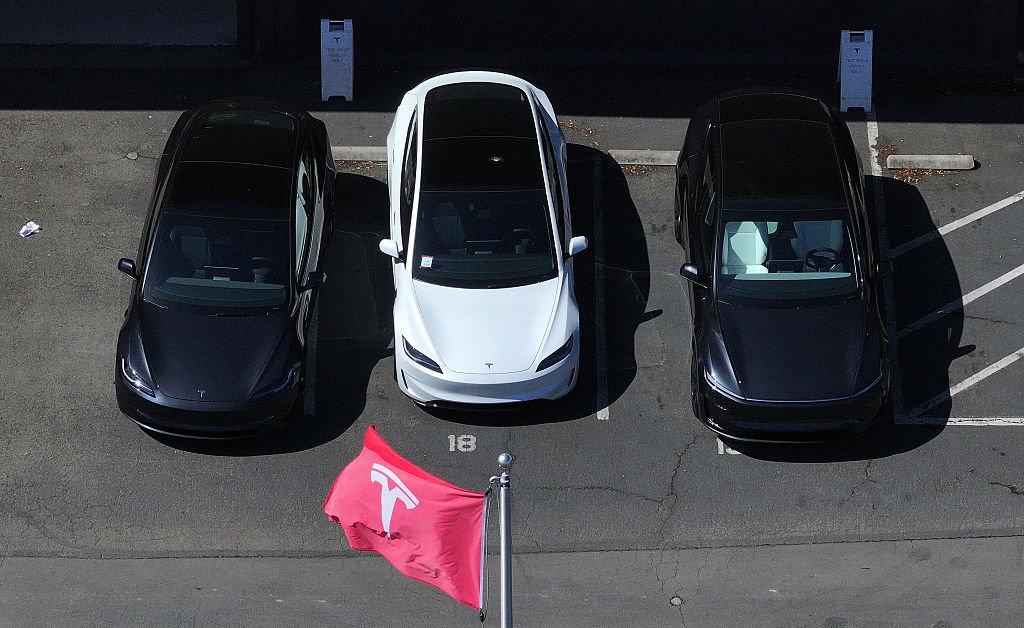Tesla's Competitors: EV Market's Shifting Dynamics
The electric vehicle (EV) market is experiencing explosive growth, and while Tesla initially dominated the landscape, a wave of formidable competitors is emerging, significantly altering the dynamics of the industry. This shift is driven by technological advancements, increasing consumer demand, and aggressive investments from both established automakers and new entrants. Understanding Tesla's competition is crucial to predicting the future of the EV market.
The Rise of Established Automakers
Traditional automakers, recognizing the potential of the EV market, are rapidly expanding their electric vehicle offerings. Companies like Volkswagen, Ford, General Motors, and BMW are investing billions in research and development, building new manufacturing facilities, and launching ambitious EV strategies. These established players possess several key advantages:
- Established Distribution Networks: They have pre-existing dealer networks, offering a significant advantage in sales and service compared to Tesla's direct-to-consumer model.
- Brand Recognition and Loyalty: Decades of brand building provide a significant head start in attracting customers.
- Economies of Scale: Their large-scale production capabilities can lead to lower manufacturing costs.
However, they also face challenges:
- Overcoming Legacy Systems: Adapting to the new EV paradigm while maintaining their existing internal combustion engine (ICE) production can be complex and resource-intensive.
- Catching Up Technologically: Tesla has a considerable lead in battery technology, software, and autonomous driving capabilities.
Key Players and Their Strategies:
- Volkswagen: Volkswagen's ID. family of electric vehicles aims to offer a wide range of models to compete across different price points and segments. Their significant investment in battery technology and charging infrastructure is a key factor in their success.
- Ford: Ford's Mustang Mach-E and F-150 Lightning have successfully tapped into existing brand loyalty, demonstrating the power of leveraging established brand recognition in the EV market.
- General Motors: GM is aggressively pushing its Ultium platform, a versatile battery system designed to underpin a wide range of electric vehicles. Their focus on integrating EVs into their existing lineup is a strategic advantage.
- BMW: BMW's iX and i4 models offer a blend of luxury and performance, targeting a different segment of the EV market than Tesla's more mass-market offerings.
The Emergence of New Entrants
Beyond established automakers, several new EV companies are disrupting the industry. These startups often focus on niche markets or innovative technologies:
- Rivian: Rivian's focus on adventure-oriented EVs and partnerships with Amazon and Ford highlight a successful strategy of targeting specific customer segments.
- Lucid Motors: Lucid's Air sedan competes directly with Tesla's high-end models, emphasizing luxury and range.
- Nio: Nio, primarily operating in China, demonstrates the global nature of the EV market competition and the importance of regional players.
The Competitive Landscape: Beyond the Vehicles
Competition extends beyond the vehicles themselves. Charging infrastructure, battery technology, and software capabilities are all crucial battlegrounds. Tesla's Supercharger network has been a significant competitive advantage, but other companies are rapidly expanding their charging infrastructure to narrow the gap. Battery technology advancements are vital for increasing range and reducing costs, a critical area for innovation and competition.
Furthermore, software and autonomous driving capabilities are becoming increasingly important differentiators. Tesla's over-the-air updates and Autopilot system are highly regarded features, making software a crucial battlefield for future competitiveness.
Analyzing the Shifting Dynamics
The EV market is far from settled. The competition is fierce, and the dynamics are constantly shifting. While Tesla retains a significant market share and technological advantage, the emergence of strong competitors from both established and new players is reshaping the industry. The success of each player will depend on their ability to innovate, adapt to changing consumer preferences, and effectively manage the complexities of the EV ecosystem. The future will likely see a more diversified and competitive landscape, benefiting consumers with a broader range of choices and driving innovation across the industry.
